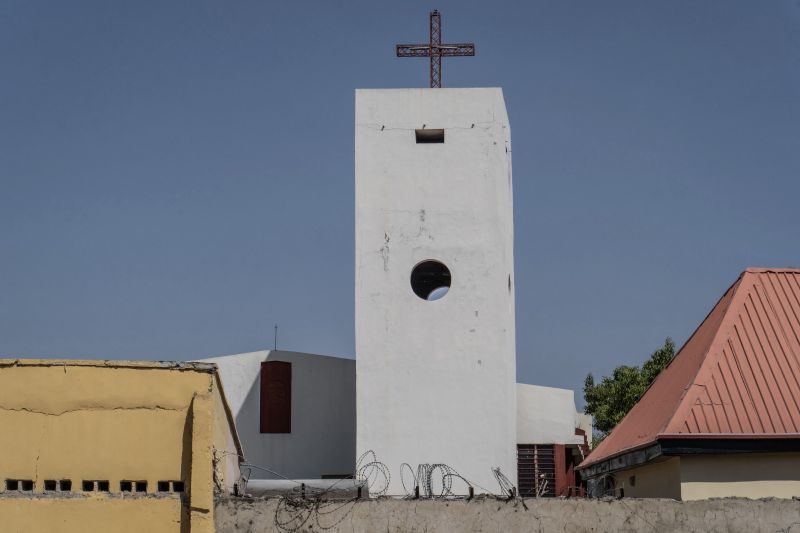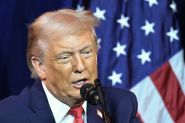- Home
- Middle East
- Nigeria: Where Every Fault Line Is Exploding

General view of a Catholic church in Maiduguri, Nigeria, on November 3, 2025. ©AUDU MARTE / AFP
The tragic events of Monday, November 11, speak volumes about Nigeria’s downward spiral. Nearly 200 jihadists were killed in clashes between Boko Haram and the Islamic State in West Africa Province (ISWAP) around Lake Chad, according to several local sources. The infighting highlights the extreme fragmentation of a conflict that has torn apart the country’s northeast for more than fifteen years and now threatens the unity of Africa’s most populous nation.
A War Within a War
Fighting between rival Islamist factions is nothing new in Nigeria, but the current surge in violence is unprecedented. Boko Haram and ISWAP, both born from the same jihadist movement, are battling for control of the Lake Chad region, a strategic area shared with Niger, Chad, and Cameroon. The territory serves as a haven, a logistical base, and a crucial source of income through fishing and farming.
Since the death of Boko Haram’s longtime leader Abubakar Shekau in 2021, the rivalry between the two groups has turned into open war, with each side seeking to dominate territory where the Nigerian army struggles to maintain control.
Nigeria’s Other Tragedy: A Spiral of Communal Violence
Alongside the Islamist war in the northeast, central Nigeria is being torn apart by a different kind of conflict, pitting Muslim Fulani militias against Christian communities. What began as disputes over land and shrinking farmland has taken on a deadly sectarian dimension.
The states of Benue, Plateau, and Kaduna have seen the worst of it: villages burned, churches destroyed, and hundreds killed every month. Many NGOs describe it as a “silent war” that is devastating the rural heart of central Nigeria.
Trump Escalates Tensions
U.S. President Donald Trump has added an international layer to Nigeria’s crisis. He accused Abuja of “allowing Christians to be massacred,” threatened possible military action, and asked the Pentagon to prepare “a plan for Nigeria.”
The Nigerian government dismissed the claims as an “unfair caricature,” stressing that the violence affects “all faiths.” Muslim leaders in the northeast noted that most of Boko Haram’s victims are Muslims and accused Washington of oversimplifying a far more complex reality.
A Country on the Brink
With more than 40,000 dead and two million displaced since 2009, Nigeria is now caught in a tangle of religious, ethnic, and economic conflicts that are eroding the authority of the central government.
In a country almost evenly divided between a Muslim north and a Christian south, mistrust is deepening. Christians in the central states accuse the government of neglect, while northern Muslims point to Western interference. Caught in the middle, ordinary Nigerians bear the brunt, facing insecurity, poverty, and widespread impunity.
Read more




Comments